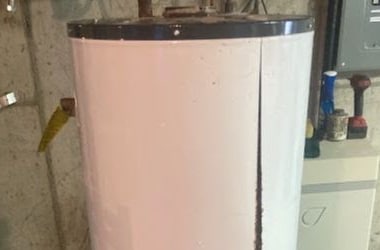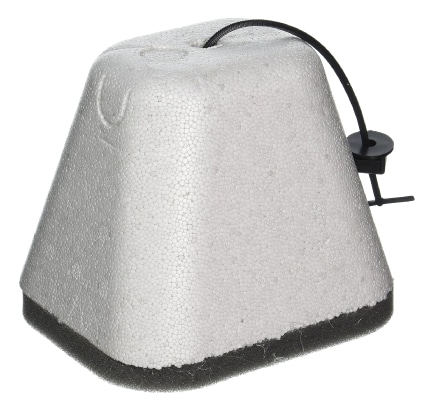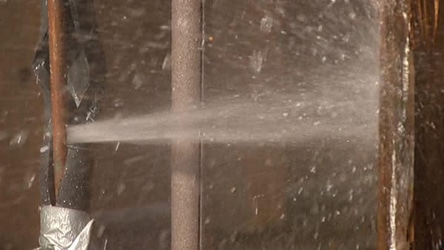Water leaks are never a welcome surprise. They can cause thousands of dollars in damage to floors and belongings. It can be especially frustrating when a water leak happens when you are away and unaware.
Below, we have a few tips to help you avoid water leaks and the damage that they cause.
1. Shut off your water main when you’re away for an extended period of time

If you’ll be leaving your home empty for a vacation or extended period of time, shutting off your water at the main will eliminate any worry of a leak while you are gone.
2. Be aware of the condition of your water heater

Check your water heater for signs of rust on the exterior. Exterior rust is a sign that the water heater tank is compromised and is prone to having a leak. Ideally, a rusty water heater should be replaced to avoid 60 or so gallons of water leaking out onto your floor.
Also occasionally check for pooling water beneath your water heater. If you see pooling water you can look for the source by following any drips along the side of the tank. At the top of a water heater the tubes entering the tank can develop a leak due to high pressure. Also check the tubes and pipes that lead to the water heater for signs of drips. At the bottom of the water heater tank you’ll want to check the drain valve for leaks. If this valve has a leak, a temporary fix is to screw on a hose cap cover until it can be repaired.
3. Disconnect hoses from spigots
This prevents water left in the hose from freezing and backing up into your water line where it can expand and cause your home’s plumbing to rupture.
4. Cover your outdoor water spigot

Covering your water spigot with an “Outdoor Foam Faucet Cover”, helps to keep the cold weather out while also allowing the warmth from inside your home to flow through the pipes. These can usually be found at Home Depot, Walmart, Lowes, or even Amazon.com for around $5 each.
5. Leave sink cabinet doors open
On freezing cold nights, leaving bathroom and kitchen plumbing cabinet doors open will allow the warmth from inside your home to help reach your plumbing below your house and prevent water from freezing.
6. Trickle hot water through faucets
Another trick is to leave your faucets slowly dripping hot water. This aids in keeping your home’s pipes warm and prevents freezing.
7. Heat Tape/ Heat Cables
Water damage doesn’t just come from leaking pipes, it can also come from your ceiling. Snow buildup on roofs can sometimes freeze along the edges and in the gutters creating ice dams. These ice dams essentially prevent melted snow from draining off the roof. As snow on the roof melts and becomes trapped by ice dams, this pooled water can seep under shingles into your home. Adding heat cables/tape to the edges of your roof aids in melting snow/ice clearing a path for melted snow to drain off.
8. Use a smart leak detection system to automatically shut off water when a leak is detected
A smart home leak detection system can automatically shut off your water when a leak is detected helping to avoid water damage. These systems monitor for leaks from your toilet, faucets, showers, and pipes throughout your home. Using your smartphone you can get alerts and have the ability to turn your water on or off as needed. You can even see your water usage in the app. A smart leak detection system like the “Flo Smart Water Monitor” also runs a nightly diagnostic where leaks can be detected as slow as a drop per minute. Smart leak detection systems may even qualify for a deduction on home insurance.

